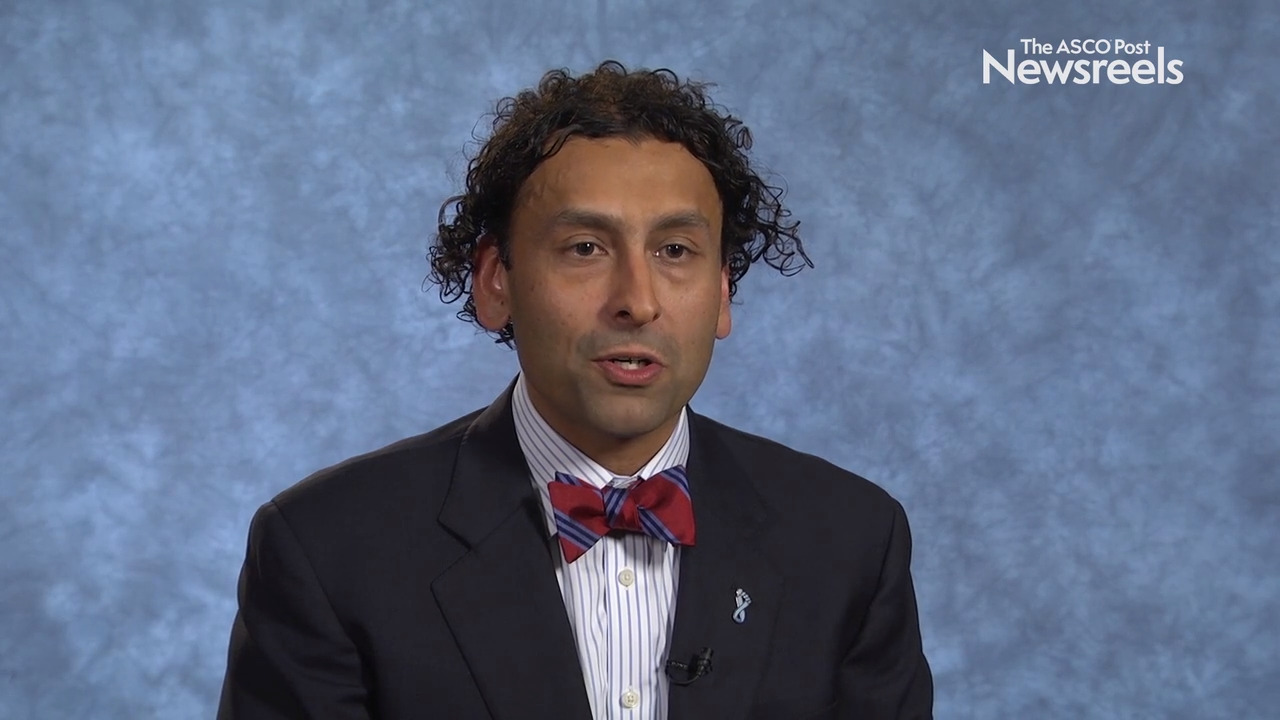Howard M. Sandler, MD, on Localized Prostate Cancer: Radiation Therapy Guidelines
2018 ASTRO Annual Meeting
Howard M. Sandler, MD, of Cedars-Sinai Medical Center, summarizes a session he moderated that included discussion of an ASTRO, ASCO, and AUA guideline; indications and dose fractionation; treatment volumes; and the use of IGRT and IMRT (Panel 03).
David Raben, MD, of the University of Colorado, discusses overall survival with durvalumab vs placebo after chemoradiotherapy in stage III non–small cell lung cancer (Abstract LBA10).
Alan Pollack, MD, of the University of Miami, discusses study findings on short-term androgen-deprivation therapy with or without pelvic lymph node treatment added to prostate bed–only salvage radiotherapy (Abstract LBA5).
Howard M. Sandler, MD, of Cedars-Sinai Medical Center, discusses a session on data from several long-term studies on localized disease, including optimal sequencing of radiation and androgen-deprivation therapy; the efficacy and toxicity of SBRT; conventional vs hypofractionated radiation therapy; and dose escalation (Scientific Symposium 08).
Bhisham Chera, MD, of the University of North Carolina, discusses using human papillomavirus found in plasma circulating tumor DNA to monitor cancer recurrence in HPV-associated oropharyngeal cancer (Abstract LBA6).
Vinai Gondi, MD, of Northwestern Medicine, discusses the early results of a phase III NRG Oncology trial that suggests a practice change in treating brain metastases: avoiding the hippocampus when delivering whole-brain radiotherapy (Abstract LBA9).





